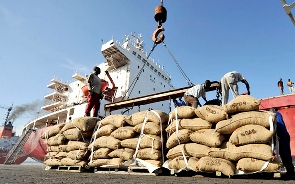The Ghana Shippers’ Authority, in collaboration with some of its stakeholders, has rolled out a campaign to sensitize the public, motorists, and haulage truck drivers on the transportation of dangerous cargo.
The campaign aims to create awareness of the dangerous cargo signages and warn the public, motorists, and haulage truck drivers. This is to help enhance road safety and avert preventable disasters.
The GSA, in partnership with the Environmental Protection Agency (EPA), has developed material on the nine (9) classes of dangerous cargo and developed a nationwide sensitisation programme. These are Explosives, Gases, Flammable Liquids, Flammable Solids, Oxidising Substances, and Organic Peroxide. The rest are Toxic and Infectious waste, Radioactive materials, Corrosive substances, and Miscellaneous dangerous goods not covered by other classes, such as Lithium battery packs in equipment.
Already, the GSA has engaged its Transit Shipper Committee – made up of the Joint Association of Port Transport Unions (JAPTU), Ghana Ports and Harbors Authority (GPHA), Ghana Link, State Insurance Commission (SIC), Ghana Highways Authority, Freight Forwarders among others – on its sensitization plans. Also, posters and placards of the signages will be made available for JAPTU to use in sensitizing its members, mostly haulage truck drivers. Promotional activation will be done on social media to target the public and motorists.
Chairman of the Transit Shipper Committee and Head of the Freight and Logistics Department, Mr. Fred Asiedu Dartey, speaking at the fourth-quarter Transit Shipper Committee meeting said: “To ensure the issue of safety in transporting dangerous goods is taken seriously, the Authority is considering the possibility of having a trainer of trainers workshop for leadership of JAPTU in the first quarter of 2023 so that they can also train their members on the dos and don’ts of transporting dangerous cargo”.
The representatives of JAPTU present at the meeting commended the GSA and expressed their readiness to avail themselves of future sensitization programmes.
Business News of Tuesday, 27 December 2022
Source: thebftonline.com

















